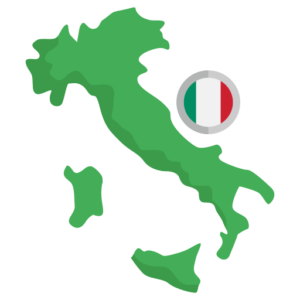- Casino News
- Industry News
EU Court to Review Italy’s Gambling Ad Ban


EU Court to Review Italy’s Gambling Ad Ban


Italy’s prohibition on gambling advertisements, which has been in effect since 2019, is now under review by the European Union Court of Justice (ECJ). The case originates from a legal dispute involving the online gambling operator LeoVegas and could determine whether the restrictions align with EU law. The outcome may have broader consequences for the online casino sector, particularly in European markets where similar policies are being considered.
Italy introduced a complete ban on gambling-related advertising through the Dignity Decree, which was passed in 2018 and enforced the following year. The measure prohibited all forms of gambling marketing, including sponsorships in sports, as part of a broader effort to limit exposure to betting promotions. The policy was introduced amid growing regulatory concerns about problem gambling and advertising’s influence on consumer behavior.
After the Regional Administrative Court dismissed an initial appeal, the company escalated the matter to Italy’s highest administrative court, the Council of State. The court decided to refer the case to the ECJ, which will now assess whether the ban conflicts with European regulations, particularly those related to fair competition and market access.
The ECJ’s review will focus on whether Italy’s gambling advertising ban creates an unfair competitive environment, particularly for operators based in other EU member states. One key issue is whether the restrictions hinder the free movement of services within the European single market, which is a fundamental principle of EU law. If the court finds that the ban discriminates against foreign operators or imposes restrictions beyond what is necessary to achieve regulatory objectives, Italy may be required to amend its policies.
The outcome of this case may influence how other European markets regulate gambling promotions. Several countries, including the Netherlands, have been exploring stricter advertising controls, with some considering outright bans. If Italy’s ban is deemed incompatible with EU regulations, it could create legal challenges for these policies, forcing regulators to reassess their approach.
For online casino operators, the decision may shape future marketing strategies within the EU. A ruling that supports less restrictive advertising policies could lead to a more uniform regulatory framework, allowing operators to develop cross-border marketing campaigns with greater legal certainty. On the other hand, if the ECJ upholds Italy’s ban, it may strengthen the legal foundation for more restrictive advertising measures across Europe, requiring operators to adapt to increasingly fragmented regulations.
This review reflects broader regulatory shifts across Europe, where policymakers continue to debate how gambling should be marketed and what level of restrictions should be in place. The ECJ’s decision may provide legal guidance that influences these discussions, shaping the future regulatory landscape for online casino operators and advertising practices.
The ECJ’s examination of Italy’s gambling advertising ban carries implications not only for the country but for the wider European online casino sector. As regulatory frameworks evolve, the ruling may determine whether stricter controls on gambling promotions remain enforceable under EU law or if adjustments will be necessary. The case highlights the ongoing tension between national policies and European market regulations, with potential consequences for managing gambling advertising across multiple jurisdictions. The decision will likely impact operators, regulators, and policymakers, shaping the future direction of gambling advertising laws in Europe.
Best Online Casinos
10 Recommended Online Brands On CasinoLandia That Will Enhance Your Gaming Experience
No results were found!








